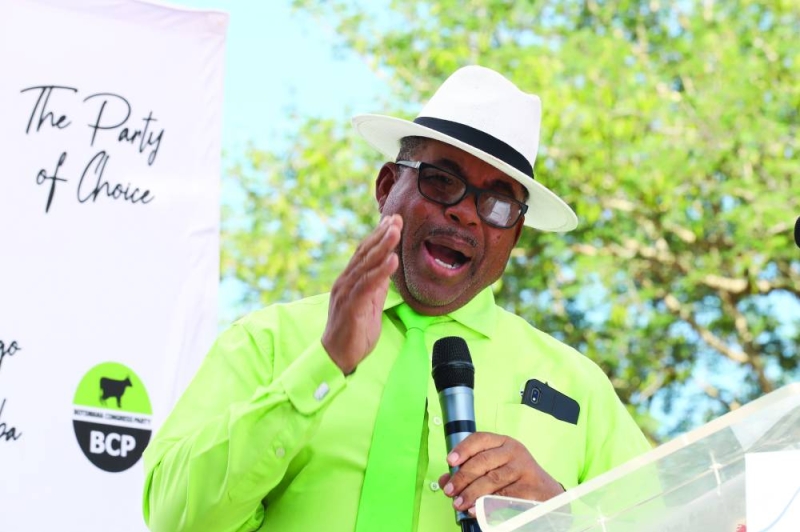Mabiletsa aligns with BCP's party funding secrecy concerns
Boikanyo Mathonsi | Tuesday February 13, 2024 06:00


He expressed worry that the ruling party, the Botswana Democratic Party (BDP), could receive the lion's share of the P34 million provisioned for political party funding. Speaking at Unity Dow's launch as the BCP Member of Parliament candidate for Kgatleng West in Rasesa, Mabiletsa emphasised the concern. 'We are concerned that the BDP is going to take the lion's share of the P34 million of political funding because the BDP wants to use the system recommended by the Constitutional review committee whereby a party with the majority of members of Parliament gets a bigger share compared to other parties,' he said.
Mabiletsa underlined the BCP's call for a fair distribution of political funding, stating that it is crucial for political party funding to be the main ingredient and central to free and fair elections. 'This is a disgrace to democracy, and we will not allow it as the BCP,' he remarked. Mabiletsa said the entire political funding process is shrouded in secrecy by the government, with decisions being made behind closed doors, away from the scrutiny of the public. He bemoaned, 'Everything about political funding is done in secret by the government led by Masisi.' Mabiletsa alleges that the issue of political funding has been a point of contention, with opposition party leaders like Dumelang Saleshando making attempts to engage in discussions with President Mokgweetsi Masisi on the matter. However, these efforts were reportedly fruitless, as the proposed meetings never materialised. 'Saleshando wrote to Masisi at least two times that all parties should meet for a discussion on political matters like this, but that never happened,' he added. Mabiletsa said the allocation of a sum of P34 million for political funding by the government has also come under scrutiny. He further mentioned that the decision-making process behind the allocation has no transparency on how this figure was arrived at. 'The BDP-led government lacks transparency. It's unclear how they reached an agreement on the amount of P34 million,' hinted Mabiletsa.
Furthermore, Mabiletsa asserts that the governing system in Botswana is not fair and only favours the ruling party. 'The democratic system in Botswana is inherently biased in favour of the ruling party, and this raises concerns about the fairness and impartiality of the political landscape.' In response to the Commission's decision on the sum allocated for political funding, Mabiletsa expressed disapproval, stating that the matter should have been handled differently. He believes that political parties should have been allowed to negotiate and agree upon an amount that reflects their individual political needs, rather than having a predetermined sum imposed upon them. 'The Commission should never have proposed a specific sum. Instead, they could have simply announced the allocation of funds to political parties, allowing them to collectively decide on the amount based on their respective needs,' suggested Mabiletsa.
In an issued statement, the BCP stressed the importance of a level playing field for all political players. 'The party has been advocating for fair political party funding since 1998 and has highlighted pertinent policy proposals to ensure transparency and fairness in the distribution of funds,' reads the statement. The BCP emphasised the need for comprehensive legislation to provide guidance on the implementation of political party funding. The party also underscored the importance of a transparent and inclusive process for the development of bills regarding political funds. It believes that comprehensive scrutiny and contributions from various groups, such as Civil Society Organisations, can provide necessary checks and balances in democracy. The BCP say this approach can help ensure that the interests of all stakeholders are considered and represented, leading to a more constructive and equitable outcome. Furthermore, the highlighted the importance of clear mechanisms for accounting for public and private funding received by political parties.
